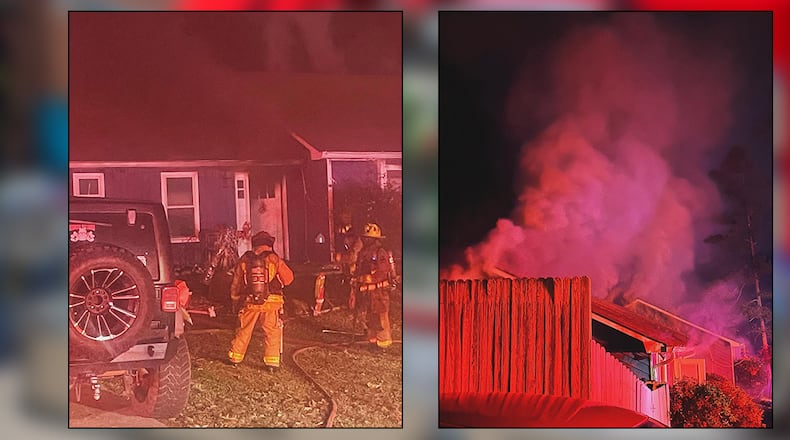A paralyzed Cobb County woman who was rescued from a house fire earlier this week was also saved from a lesser-known side effect of smoke inhalation: cyanide poisoning.
Cyanide is often released into the air when modern buildings and furniture burn, Cobb Fire and Emergency Services spokesman Nick Danz told The Atlanta Journal-Constitution. The National Institutes of Health describes cyanide as “one of the most rapidly lethal poisons known to man,” especially when it is inhaled rather than swallowed.
According to Danz, nearly 90% of those who suffer from smoke inhalation in a house fire also suffer from cyanide poisoning. Smoke inhalation is the most common cause of death related to house fires.
When Cobb firefighters pulled the woman from her burning home near Kennesaw on Tuesday night, they faced a race against time. Despite rushing into the home before water lines were even deployed, the woman had inhaled enough smoke that she had soot in her airway. She was suffering from cyanide poisoning.
The typical treatment involves stabilizing the patient, clearing their airways, removing the source of the cyanide and pumping their stomach if the poison was swallowed, according to the NIH. In cases of cyanide inhalation, when a person can be killed within minutes, one of the only treatments that will work quickly enough is giving the patient an antidote intravenously. The most common and effective antidote is a version of the vitamin B12.
Luckily for Cobb residents, their county’s fire department was among the first in metro Atlanta to carry cyanide antidote kits on every rescue truck, according to Danz.
“Cobb fire was an early adopter of Cyanokit,” Danz said, using the brand name for the intravenous B12 treatment they employ. “We were one of the first to use them in the country. We started using it before the area hospitals had them in 2017.”
The form of B12 that works as a cyanide antidote has been used in France since the 1980s and was formally licensed there in 1996, according to the Cyanokit website. The treatment was not approved for use in the U.S. until 2006.
Many people are familiar with B12 in vitamin form, but swallowing a vitamin tablet would not act quickly enough to prevent death from inhaling cyanide. For the treatment to be effective, a paramedic must administer the antidote in an IV drip, Danz said.
This year, the Cobb fire department, which employs more than 150 paramedics, has treated 15 patients with the antidote in nine house fires, Danz said. In those cases, 10 people survived, while the other five died as a result of severe burns rather than smoke inhalation.
After receiving the Cyanokit treatment Tuesday night, the fire victim was taken to the hospital, where she remains stable and is expected to recover. Her survival was not a given; Danz confirmed that two dogs and six cats were killed in the blaze.
About the Author
The Latest
Featured


